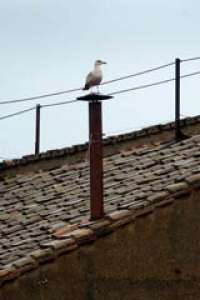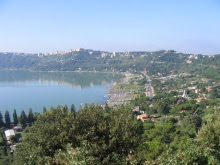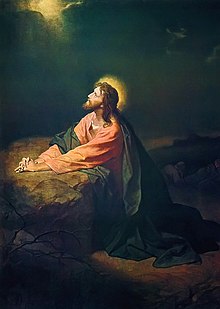 |
Seagull on Sistine Chapel chimney
|
From: edward .....
To: Donald .
Sent: Friday, 22 March 2013, 14:01
Subject: Re: Fw: Some 'soul-quakes' on Pope Franciscus
To: Donald .
Sent: Friday, 22 March 2013, 14:01
Subject: Re: Fw: Some 'soul-quakes' on Pope Franciscus
Dear Father Donald,
Thank you for two letters. You were generous to publish so much of me, but you have permission to use whatever comes from me, or not to use it.
Two later poems are attached. One for the 25th Anniversary of Our Sisters, the other about Pope Francis's inauguration sermon, which was excellent.
Blessings in Domino,
fr Edward O.P.
----- Forwarded Message -----
From: edward booth ...
To: Donald Nunraw ...
Sent: Saturday, 16 March 2013, 22:45
Subject: Some lines on Pope Franciscus
From: edward booth ...
To: Donald Nunraw ...
Sent: Saturday, 16 March 2013, 22:45
Subject: Some lines on Pope Franciscus
Dear Father Donald,
I must say that my first reactions to the election of Pope Franciscus
were of non-comprehension.
But I persevered and I see in him the taking on of the Papal charism,
as I had seen it in Pope Benedict.
I quote a poem I wrote in 2009*[Earthquakes], which I think as a poem was much
better and came from a period when my poems were greater adventures
(each of them) than the more recent ones.
The Scottish Jesuit quoted was Father James Quinn, who did a lot of
translating work. He was the spiritual at the Beda when I was teaching
there. I remember other parts of his patter: "Never say that there is
light at the end of the tunnel: it might be an approaching train!"
I thought I had sent this, but just found it unsent (1045 p.m.
Saturday). I have changed the name of the priest to the correct one,
something I had asked Heather to pass on to you verbally)
Blessings in Domino,
fr Edward O.P.
--
Father Edward Booth O.P.
Stykkishólmur,
Iceland.
Newly elected Pope Francis (C) bows his head in prayer as he appears on the central balcony of St Peter's Basilica on March 13, 2013 in Vatican City, Vatican. Argentinian Cardinal Jorge Mario Bergoglio was elected as the 266th Pontiff.
Consapevolezza
nell'Ultimo Luogo – P.R. fina P.F.
My
computer's memory is more finely tuned than my own.
I had
watched with intensity the soul-changes evidenced in his face
which
took place in Papa Ratzinger from his acceptance to his inauguration.
I saw
the emergence of a charismatic other:
a
boy-soul and with it a boy-face of youth and innocence:
the
Lord in taking possession was re-arranging cathartically, utterly,
the
long laid foundations and structures to make him other -
ultra
vires proprias -
to
lead, to model his humanity and so to model others.
I
watched, intrigued, to see his reactions to the Cardinals
passing
into the sunlit Piazza:
a
delicate salute when he was saluted,
all
Christ-like positivity of the highest elevation.
And
now, the body and mind spent in high service
 |
| Reposing in the Alban Hills at Castel Gondolfo. |
he's
reposing in the Alban Hills at Castel Gondolfo.
Vergelt's
Gott's a
wish which in such a matter rises to transcendence.
And
now again, the self-same charism's deeply lodged
zygotically
in the soul-womb of another.
Puzzling
initially in his different great-soulness,
with
billions of others I watched him,
this
Italian transplanted body and soul.
Born
and raised in Argentina.
The
crowd erupted, the youth especially,
drizzle-washed,
time mattered not.
Billowing
black smoke, until the fifth essor
brought
billowing white.
The
observant seagull disappeared -
if he
returns to a possible nest-site at the peak,
he'll
find it dismantled!
But
himself in white soutane and white souquetta,
without
stole until the blessing and without red, fur-trimmed capa:
“Brothers
and Sisters, bona sera … !”
Soft-spoken!
(I asked myself “Where is the fire?”)
We
prayed for him. He blessed us and the entire world,
spoken
not sung in the ancient form.
The pixel-content
to display the fullness of his idealism and his past
was
not large enough in that short burst to say a fraction
of
what's disposable.
I
thought of what lay in wait:
the
well-known problems, the overall normalising
where
alone it counts.
I felt
protective: could that kind but seeming forceless voice
give
spirit blows for each injury received?
With
a chronology but not coherent;
videos
seen not rightly ordered, I felt a stranger watching distantly.
Some
views of him – no spectacles - seemed not
of a younger
but
of another man.
Quite
out of order I watched the Sistine Mass:
the
homily in such an unusual style: “... camino insieme … !”
 |
| Pope Francis at Our Lady as “Salus Populi Romani” in Saint Mary Major's |
Then
I saw what came in between,
that
early promised, though undefined, visit to Our Lady:
just
after 8 o'clock:
driven
in a service car to a side entrance,
with
flowers presented to Our Lady as
“Salus
Populi Romani” in Saint Mary Major's.
I saw
the emerging intensity given
in
greeting to the early Mass attenders,
the
Community of Dominican Confessors,
of
whom an earlier Prior once sought my co-presence.
The
force, the movements highly sensitized,
not
from a boy-face yet younger:
truer
and truest;
the
transition from that first heavy face complete it seemed.
But
that later Sistine Mass found him in full transit,
a
charisma-Pasch, but not complete.
I
watched his Mass with minor idiosyncratic deviations from the rubrical norms.
Memories
arose of a Scottish Jesuit, now dead,
with
a well-rehearsed patter of wide origins,
self-deprecating
over Jesuit liturgical inaccuracies:
summed
up as “Like a Jesuit in Holy Week”.
With
the guidance of Monsignor Marini that will be covered, reorganised.
But
how to describe the transformation?
I
found amongst my sermons and writings, including Recollections,
innumerable
references to earthquakes,
such
as I heard and felt in the protracted rumblings and shakings,
and
from the impatient honkings of innumerable cars
descending
from the Alban Hills – perhaps as Ambrogio suggested:
“a
pseudo-panic with the hope
of
getting the area designated a 'disaster zone', producing tax reductions,
even
subsidies.”
I
found some lines in an old poem of mine:
Earthquakes
within dated
30th April 2009.
I
started from those from without,
then
continued with lines not exactly appropriate to Ultimus Locus
but
offering a mental scale:
“The
soul also has presages,
anticipations of what
might or must come.
Crash-threats
with multiple fractures,
attritions, scree-falls.
anticipations of what
might or must come.
Crash-threats
with multiple fractures,
attritions, scree-falls.
May
the angels keep us
in their still minds.
May the saints show their presence.
Against soul-quakes
there‘s the measure of order,
which reveals its jagging
by breadth and in depth.
Catharsis is multiple.
Such moments show what‘s
in their still minds.
May the saints show their presence.
Against soul-quakes
there‘s the measure of order,
which reveals its jagging
by breadth and in depth.
Catharsis is multiple.
Such moments show what‘s
deepest
in us
and how various
what the skin cannot resist.”
and how various
what the skin cannot resist.”
The
scale is there, though I'm not prophet enough to know what benefits
this
normalising of the highest event may bring down
from
above and from around,
with
elements from the old and recent past
and
all the lessons from the discovery and from the recent politics
of
the Argentine Republic.
But
in the highest beneficial sense
it
provides the hopefullest bracket of the
Christian
and Catholic experience:
“sweet
are the uses of adversity”.
And
the finalising words on physical earthquakes made clear
an
interpretation not literal, even counter-literal
of
beneficent catharsis:
“Then
the tension breaks
and danger lunges and stalks
so quickly.
Seconds long man‘s his plaything.
The dust rises;
the rubble rattles and grows.
After time it settles,
damped down by the rain.”
and danger lunges and stalks
so quickly.
Seconds long man‘s his plaything.
The dust rises;
the rubble rattles and grows.
After time it settles,
damped down by the rain.”
Rain
dampening,
an
ancientest image of
the
work amongst us of the highest Wisdom,
for
where the strains are replaced
by
the penetrative fall of gentle rain: pacifying the spirit
and
the promise of the harvesting of both
Eucharistic
and non-eucharistic fine wines,
Fr. Edward OP
Stykkishólmur 15 March 2013
 |
| Monte_Cavo_e_lago_Albano |
* Earthquakes 2009
Earthquakes
within
Between
the physical and the spiritual
who can doubt the echoes and the likenesses?
Those landquakes I have known
in the Alban Hills
were extending shudders
absorbed and transmitted
by hot liquid rock
almost on fire below.
No danger
though they caused some panic.
They left cracks in walls, floors, ceilings,
whilst doors lost their fit.
In the calcareous mountains
the unbending rock‘s pressured.
The earth‘s electricity is disturbed
troubling invisibly and deeply the air,
thence spreading unease
filled out in a silence between opposite poles;
picked up by birds, by animals,
most by men.[i]
Scaring with inarticulate fears, drying mouths,
unloosing long dormant passions,
troubling all inner sense.
Then the tension breaks
and danger lunges and stalks
so quickly.
Seconds long man‘s his plaything.
The dust rises;
the rubble rattles and grows.
After time it settles,
damped down by the rain.
The soul also has presages,
anticipations of what
might or must come.
Crash-threats
with multiple fractures,
attritions, scree-falls.
May the angels keep us
in their still minds.
May the saints show their presence.
Against soul-quakes
there‘s the measure of order,
which reveals its jagging
by breadth and in depth.
Catharsis is multiple.
Such moments show what‘s
who can doubt the echoes and the likenesses?
Those landquakes I have known
in the Alban Hills
were extending shudders
absorbed and transmitted
by hot liquid rock
almost on fire below.
No danger
though they caused some panic.
They left cracks in walls, floors, ceilings,
whilst doors lost their fit.
In the calcareous mountains
the unbending rock‘s pressured.
The earth‘s electricity is disturbed
troubling invisibly and deeply the air,
thence spreading unease
filled out in a silence between opposite poles;
picked up by birds, by animals,
most by men.[i]
Scaring with inarticulate fears, drying mouths,
unloosing long dormant passions,
troubling all inner sense.
Then the tension breaks
and danger lunges and stalks
so quickly.
Seconds long man‘s his plaything.
The dust rises;
the rubble rattles and grows.
After time it settles,
damped down by the rain.
The soul also has presages,
anticipations of what
might or must come.
Crash-threats
with multiple fractures,
attritions, scree-falls.
May the angels keep us
in their still minds.
May the saints show their presence.
Against soul-quakes
there‘s the measure of order,
which reveals its jagging
by breadth and in depth.
Catharsis is multiple.
Such moments show what‘s
deepest
in us
and how various
what the skin cannot resist.
and how various
what the skin cannot resist.
Fr. Edward OP
Stykkishólmur
30
April 2009
i. These two lines were written from memories which were
long, now untraceable. I decided I must investigate it. I found that many Japanese
have worked on phenomena associated with earthquake prediction.. Japanese
seismography seems to have been helped much in the nineteenth century by
Scottish physicists including the pioneering Cargil Gilston Knott. There is a
book by a Japanese writer on the reactions of animals (drawing on extensive
folklore research) which include birds, touches on plants, and has some human
reactions: Motoji Ikeya, Earthquakes and animals, from Folk Legends to Science (Singapore 2004). Generous portions of this
are to be found in Google Books. He comments on the scepticism of western
thinkers and Japanese who take over their ethos.






